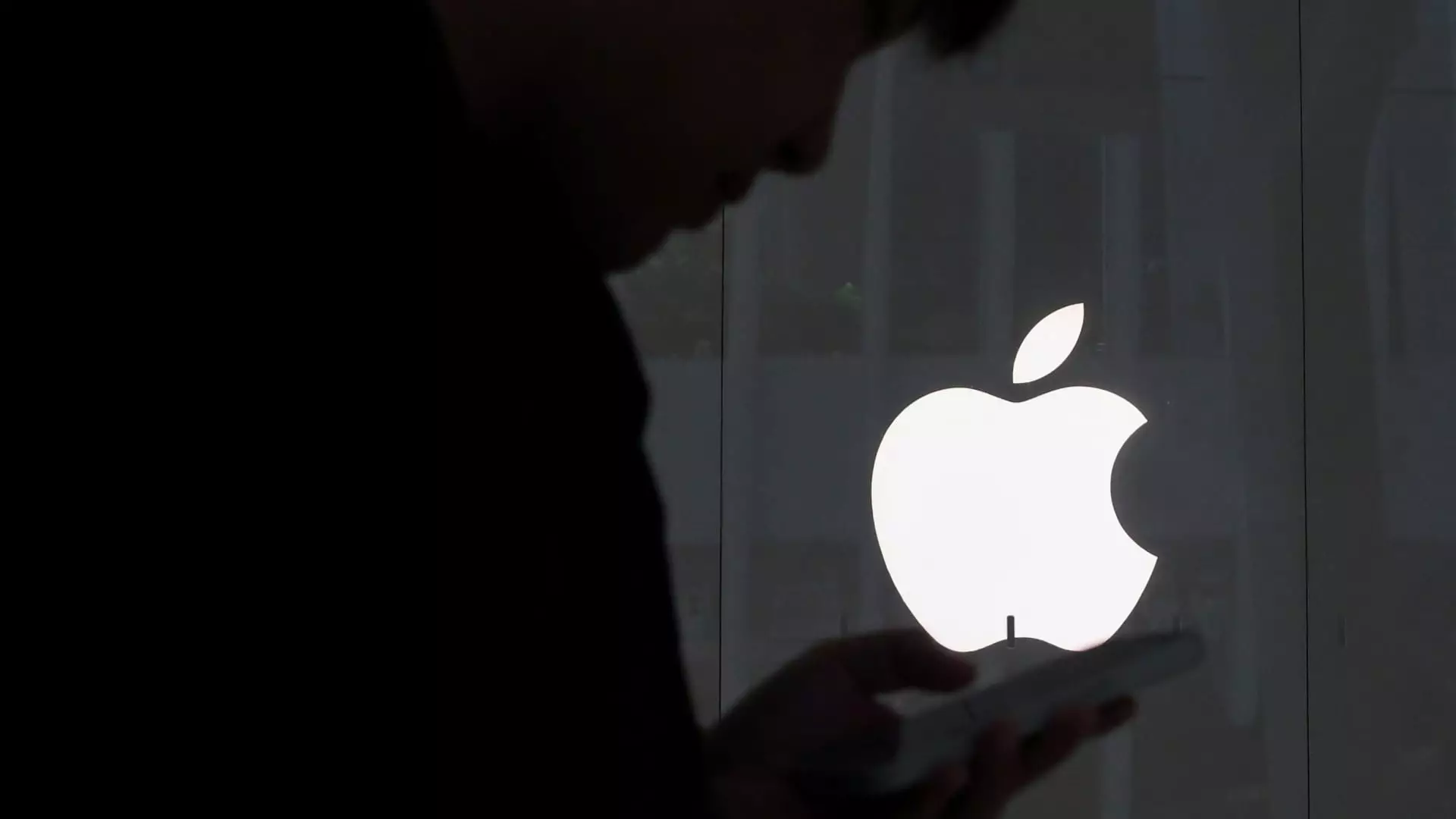Apple, a titan in the technology sector, is experiencing a valuation crisis. With shares recently floating around $203, many investors may want to reconsider their optimism regarding this stock. Investment firm Needham has downgraded Apple from buy to hold, suggesting that the stock is starting to resemble a financial bubble waiting to burst, rather than a robust long-term investment. Analyst Laura Martin has shifted her stance, pointing out that Apple’s forward earnings multiple stands at a staggering 26 times—far more than its big tech counterparts. This high valuation is especially concerning given Apple’s comparatively slower growth.
When looked at analytically, Apple’s perceived strength might simply be a mirage. In a marketplace that thrives on innovation and speed, holding onto the idea that Apple will continue to churn out groundbreaking products at its historic pace is akin to betting on a team that has long since lost its star players. Analysts within the tech sector should take a hard look at the fundamentals; Apple’s pompous valuation is not backed by the kind of aggressive growth that other tech competitors are demonstrating.
Stiff Competition Breeding Apathy
One cannot overlook the increasing scrutiny from formidable competitors like Meta Platforms and Google. These companies are not merely catching up; they’re drafting blueprints that may soon eclipse Apple’s ecosystem in originality and utility. Martin speculates that the future may not be tied to the smartphone revolution that Apple once dominated but rather to innovative wearables, such as glasses. While Apple recently abandoned its own augmented reality glasses project, its competitors remain steadfast in pushing forward.
Interestingly, Jony Ive’s departure to OpenAI could represent a seismic shift in design philosophy, further exacerbating Apple’s troubles. If Ive, with his vision to liberate consumers from screens, creates tangible, consumable products adapting to shifting consumer behaviors, Apple’s hold on the market could be irrevocably shaken. What is alarming is that Apple appears to be stationary, hesitating to adapt while competitors race ahead.
Consumer Spending: A Cloud of Uncertainty
In an era marked by economically tightening belts, Apple’s pricing strategy becomes critically relevant. Increasing scrutiny on consumer spending leads to a creeping unease—are people willing to splash thousands on the latest iPhone when alternatives are available? Coupled with tariff-induced uncertainties, there’s the possibility that Apple’s flagship offerings could become designated luxury items that the average consumer cannot afford.
With a high stake in the smartphone market, the risk here is monumental. If consumers begin to migrate away from Apple’s higher-priced offerings due to economic constraints, the resulting impact could send shockwaves through its stock valuation, which is already teetering at precarious heights.
The Dependability Fallout: Revealing Regulatory Risks
Apple’s reliance on Google’s $20 billion annual financial support as Safari’s default search engine could also spell danger. With government regulations continuing to breathe down the neck of tech giants, the prospect of losing this revenue stream should not be taken lightly. The regulatory landscape is murky, and liability risks are climbing, which means Apple is navigating an increasingly dangerous terrain.
To compound these challenges, there’s the underlying threat of rising litigation costs that loom large, which not only drains resources but could potentially hinder innovation. When it comes down to it, Apple’s ability to maintain its competitive edge is intertwined with both consumer confidence and a favorable regulatory environment. Both seem fragile, making this a precarious moment for the company’s future.
Analysts vs. Reality: The Bullish Outlook Fallacy
While Needham’s bearish outlook stands out, it’s worth mentioning that the majority of analysts still hold a bullish stance toward Apple. Out of 51 analysts, 34 maintain buy or strong buy ratings. However, this bullishness could be a classic case of herd mentality—the comfort of following the pack can drown out the critical, analytical perspective needed to recognize the shifting landscape.
Remember, optimism should not cloud judgment. Just because the majority holds a stance doesn’t necessarily mean that the fundamentals are robust. It’s prudent to stand back and critically assess whether the bullish outlook is justified in a market increasingly marked by uncertainty and risk.
In summation, investors should adopt a discerning attitude toward Apple shares as the company navigates a potentially hazardous future, laden with competition, economic challenges, and regulatory scrutiny. Although Apple may still be a startup darling in the eyes of many analysts, the reality is that investors face an unclear horizon, ushering in an era where caution is the best course of action.


Leave a Reply